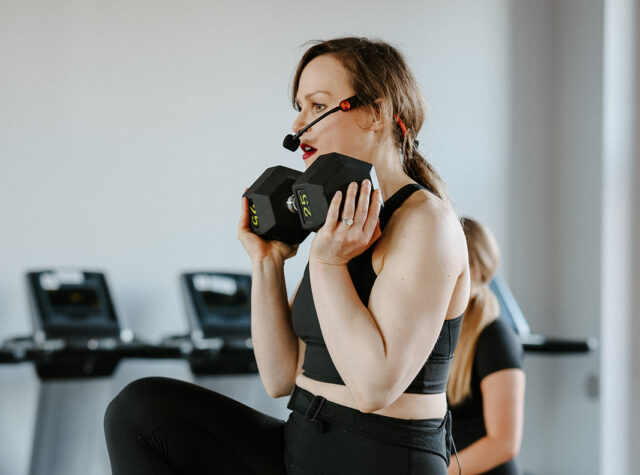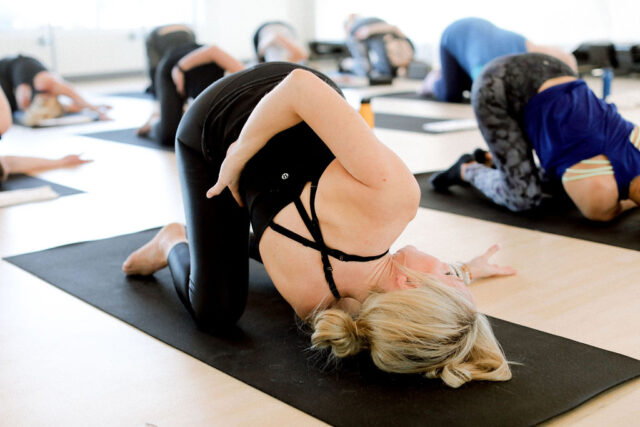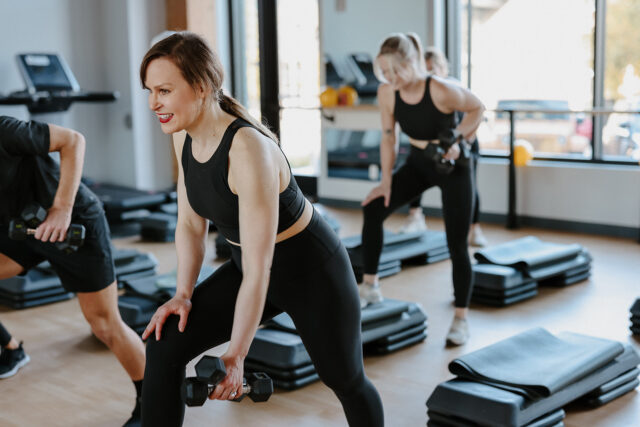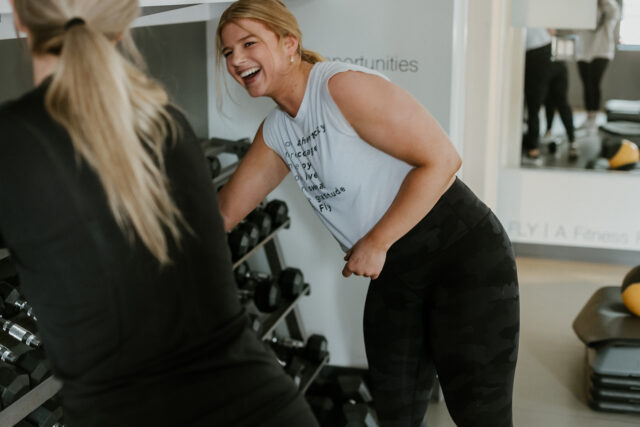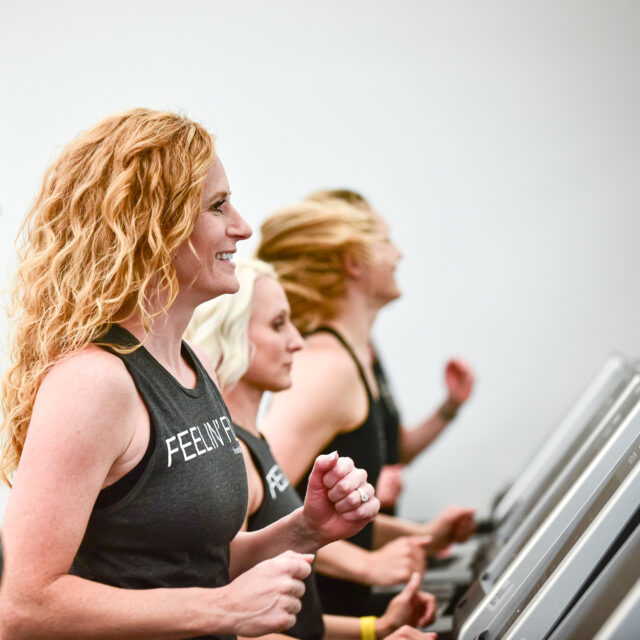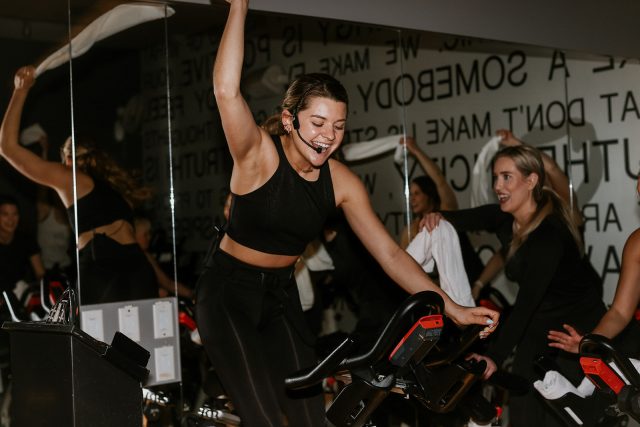Recovery: An Essential Part of Your Workout Plan
- By Dr. Jenni Bruning Brown
- August 10, 2017
A good workout isn’t just about what happens when you are burning calories and sweating it out in the gym. What you do post-sweat sesh is almost as important as those crunches or tap backs. Make the most of your workout by hitting it hard at the studio, then following it up with some workout recovery tips from Dr. Jenni Bruning Brown, owner of Fly | A Fitness Revolution.
“What you do immediately after you exercise affects how your body refuels itself, how it feels and how your muscles regenerate,” she says. Jenni recommends following a few simple rules to help you recover post workout.
Design a workout plan. The simplest way to recover quickly is to create a smart, balanced workout plan right off the bat. Doing excessive exercise every day, attending the same fitness class without a break, not listening to your body or skipping rest days will affect your body’s ability to recover. For example, make sure you don’t do high-impact HIIT workouts more than 3-4 days per week. Instead, incorporate stretching or some yoga classes and alternate workouts with various weights of dumbbells. Balance in a workout plan is key for recovery — that includes at least one rest day per week. Take an easy stroll in the park, catch a movie, lounge poolside, and just relax!
Drink. Drink. Drink. And, no we’re not talking about adult beverages. Good ole’ water is all you need to immediately replenish your muscles and rehydrate your whole body after a sweaty workout. Ideally, you’ll want to drink 15-20 ounces post-workout (not including what you drank during your workout). Sports drinks are also good, because many of them contain potassium or electrolytes to help balance you if you feel dizzy or extra fatigued. Just remember that water is the best way to replenish your body, so take advantage of the benefits it offers.
Get some zzzz. Getting good, deep sleep is critical for people who exercise regularly. Any athlete can tell you that they need more sleep when doing intense workouts. Sleep is not only important for helping to reduce your overall fatigue, but it’s critical for muscle repair. While you’re sleeping, your body is busy repairing muscles and tissue that was broken down during workouts.
Stretch it out. Stretching is essential for recovery, especially if you feel sore or are thinking about skipping workouts because you are too sore to come back. Do some active stretching and keep your body moving. It’s essential to try to always spend a few minutes stretching out after you exercise. Stretching while your body is warm can help increase flexibility, decrease muscle soreness and increase blood flow. If you’re up for a full-body stretch, work in a good yoga flow class right after or in lieu of your regular workout class.
Eat something. What and when you eat is critical when it comes to your recovery. In the first 60 minutes following exercise, you want to eat a carbohydrate-rich snack to ensure muscles are properly fueled. The body will convert those foods into glycogen faster right after a workout than any other time, which in turn will allow your body to use or store this glycogen as fuel for energy during exercise. If you’re someone who exercises daily, you’ll know if you’re not getting the proper fuel. Signs of low muscle glycogen include continual or nagging injuries, feeling constantly tired or the sensation of heavy legs during workouts. Grab an apple, a handful of berries, a sweet potato snack or some oatmeal right after you exercise to refuel your body.
Ice bath, anyone? Jenni swears by ice baths. “They feel really rough when you’re in them, but the results are amazing once you get out,” she says. Jenni recommends 10 minutes in a tub that is filled up only to the area of your body you want to ice. If it’s your legs, just fill it to your hips. To stay warm, you can wear a shirt or clothing if you choose. Many athletes know the benefits of ice, and use cold baths to recover faster, prevent injuries and to keep soreness at a minimum.
All of these tips are a great way to keep your body rested and performing at its peak. However, the most important thing you can do to recover is to pay attention to what your body is telling you. If you notice soreness, excessive fatigue or a drop in performance, it might be time for a break. But, if you feel strong, you don’t have to force yourself to slow down. The key is to pay attention to what your body needs. Just like your pushups, running or cycling class, your recovery is essential too.

